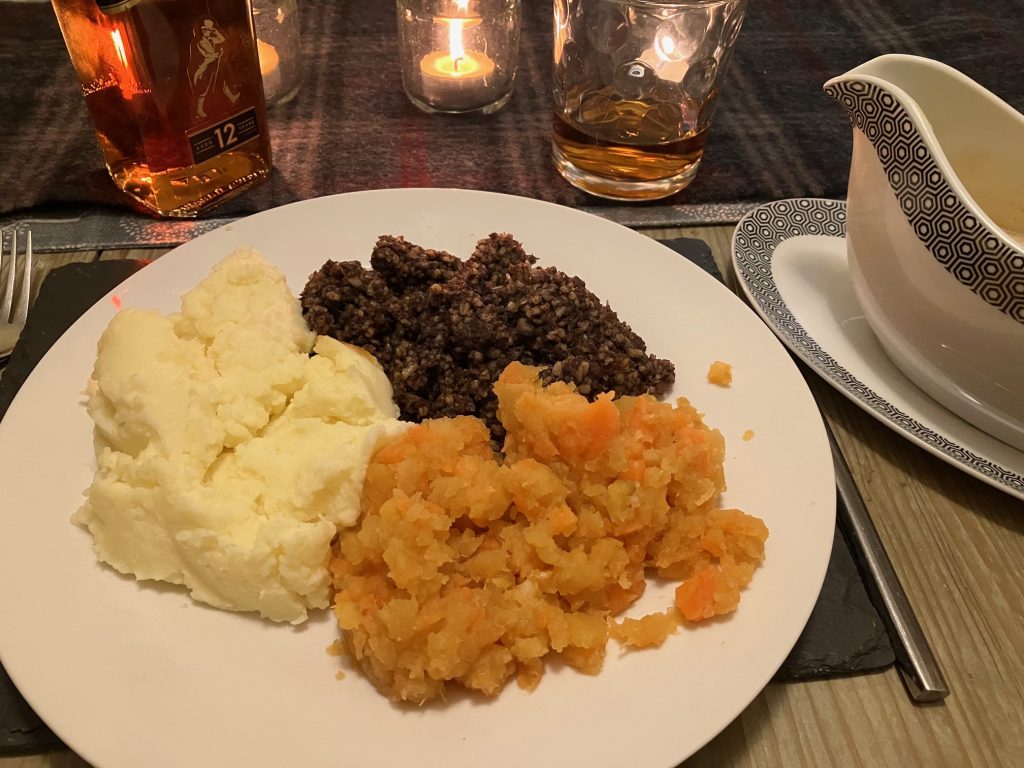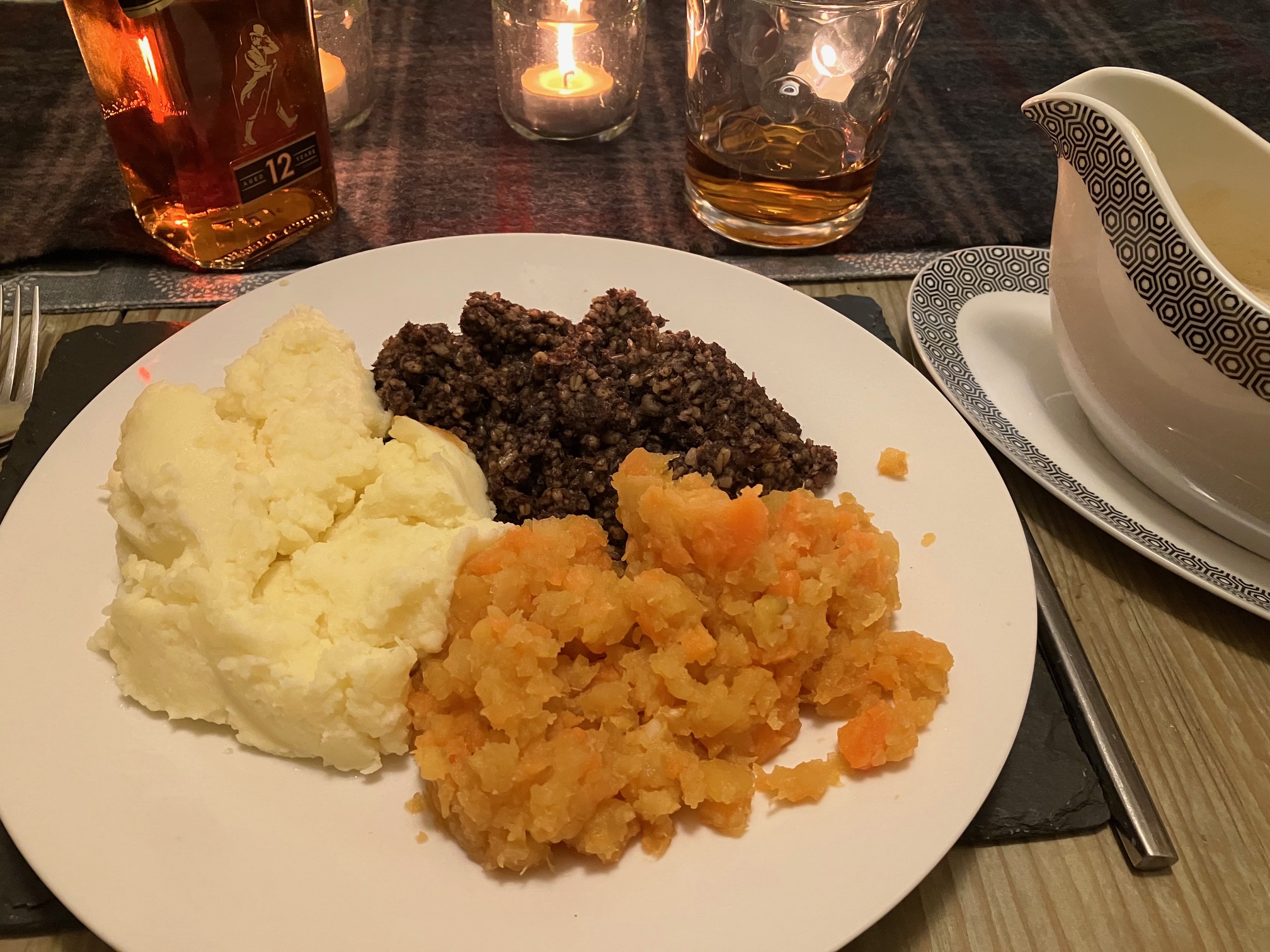One of the funniest things about the film My Big Fat Greek Wedding is the Greek father’s attempts to prove that everything originally came from Greece. In my experience, Scots share a similar belief – that everybody originally came from Scotland.
Years ago, while accompanying a group of French students on a trip to Glasgow, I discovered, to my surprise, that I was actually Scottish. I was ordering a round of drinks in a pub when regulars at the bar heard my accent and asked where I was from. The news that I was from Yorkshire was greeted warmly, as God’s Own Country was obviously considered a Little Scotland. Then they asked my surname – Watson. This was greeted even more warmly as it was proof that I was really Scottish; I even had my clan’s tartan cheerfully pointed out on a big chart hanging on the wall. Then when I mentioned my mother’s Irish maiden name, it turned out that her family weren’t really Irish, they were Scottish too! Another tartan was duly pointed out. There were so many tartans on this chart it looked like even the French visitors might discover they were actually Scottish too.
This bond formed the basis of a great night and our party were treated to free drinks all round (Scots mean? I’m sorry, you just haven’t met the right Scots.)

One of my relatives. Probably.
The fact that my husband’s family is Scottish needs no investigation. His grandfather’s family walked (literally walked) from Dundee to Birmingham in the 1930s in search of work. Looking into his family tree, my husband found his relatives weren’t actually from Dundee but a wee place called Inverkeilor. A family pilgrimage is being planned – by car this time, not foot.
I say all this to head off any accusation of cultural appropriation when I share a haggis recipe for Burns Night (January 25th).
It was on that glorious trip to Glasgow that I first tasted haggis – the dish popularised by Robert Burns in his poem Address to a Haggis. Had I been offered haggis at any previous time, I would have declined due to the very thought of it. Something to do with sheep’s stomach….eurgh, pass the sick bucket etc. But on this happy occasion I had to be polite and tuck in because I was staying with a wonderful host family who had cooked it for us. Oh my word, it was fantastic. To think if I hadn’t been on that trip, I would never have tasted it.
Having so far praised all things Scottish, there is one thing I can’t let them get away with – Burns Night or no Burns Night – their problem with pronunciation.
While a student in France on my year abroad, I made two great friends who were also studying French – Alison, from Glasgow, and Anna, from Donegal. We became the best of friends and our ears gradually adapted to the newness of each other’s accents – ‘gradually’ being the operative word.
One evening over a meal of spag bol, Alison asked me to pass the paper. I turned to the desk behind me, picked up a pad of notepaper and passed it to her. She stared at me nonplussed and asked again for me to pass the PAPER. I responded by thrusting the notepaper more urgently towards her.
‘I said PAPER,’ she said, raising her voice as if I were deaf.
‘AND HERE IT IS!’ I shouted back.
Honestly, what’s wrong with her, we both thought.
This went on for a few more seconds, while Anna sat firmly on the fence grating a lot of parmesan on her pasta. Finally, Alison got up, walked round the table, picked up the pepper pot, with a meaningful look at me, and took it back to her place.
‘If you wanted the pepper,’ I asked, ‘then why did you ask for the paper?’
‘I didn’t ask for the PAPER, I asked for the PAPER,’ she retorted.
Talk about being divided by a common language. Thus, we came to realise that Scottish people have a problem with differentiating between the pronunciation of certain words. Or rather I realised that; Alison probably came to a different conclusion.
Eejit test
I honestly don’t know how Scots differentiate between pepper and paper when talking to each other. Maybe they use hand signals, or perhaps they think the context would make it obvious to anyone but a total eejit. I just hope I am never in a critical situation where the confusion caused by a Scottish pronunciation of pepper and paper could mean the difference between life and death.
The point of this blog – and there is one – is that haggis is a delicious waste-free meal. Don’t wait as long as I did to find out.
Looking up haggis recipes to try out, I was happy to learn that sheep’s stomach has generally been replaced by casing, and the work involved with the offal ingredients means it’s easier to buy ready-made, which is what we’ll be doing tonight for Burns Night. It will be served, of course, with neeps (mashed swede) and tatties (mashed potatoes) and we’ll be raising a toast to my husband’s Inverkeilor relatives and all my distant unknown clans.

My recipe search also came up with a veggie version that’s just as tasty, with whisky sauce to serve.
Happy Burns Night to all Scots – including all those who don’t yet know they are.
Julie
Vegetarian Haggis – Serves 6
- 2 large portobello mushrooms, roughly chopped
- 1 medium sized brown onion, finely chopped
- 1 large carrot, grated
- 50g salted butter
- 100g pinhead oatmeal
- 55g split peas
- 55g pearl barley
- 1/2 tsp mace
- 1/2 tsp black pepper
- 1/2 tsp salt
- 1/2 tsp nutmeg
- 600ml vegetable stock
- 1 1/2 tsp marmite
- 1 1/2 tsp black treacle
- Oven 180 degrees C
Instructions
- Boil split peas and pearl barley in two separate saucepans – split peas for 25 mins and barley for 20 mins.
- Fry onions in 25g of butter, add the chopped mushrooms and when soft, stir in the grated carrot.
- Make your stock, stir in the marmite and black treacle until they both dissolve.
- Add the oats to the frying pan and then 400ml of the stock.
- Add the salt, nutmeg, pepper and mace and stir while gently heating.
- Drain your split peas and pearl barley, add both to the frying pan, Allow the stock to reduce down, stirring gently.
- Add 25g butter and the remaining 200ml of stock.
- Cook the mix over a medium heat until the stock has reduced completely, stirring often to avoid it catching on the bottom of the frying pan.
- When the mix is cooked through and the stock has reduced, taste to make sure flavour is balanced, adding more spices, marmite or treacle as required. The flavour should be warming and peppery with an earthy undertone and a little sweetness.
- Spoon the mix into a well-greased loaf tin and place into the preheated oven for 20-30mins, or until the top of the mix is crispy and darkened.
- Once the haggis is cooked take it out of the oven, place a length of tin foil over the top of the haggis and then an upturned baking tray. Gently turn upside down so you end up with your haggis, out of the tin. on the foil on the baking tray.
- Place this back in the oven for 2-5 mins to crisp the outside of the haggis.
(scottishscran)
Whisky sauce
- 2 finely chopped shallots
- 300 ml double cream
- ½ teaspoon salt
- ¼ teaspoon black pepper
- 1 tablespoon butter
- 3 tablespoon whisky
- 1 tablespoon Dijon mustard
- Fry shallots in butter for 3 to 4 minutes until soft.
- Pour in the whisky and allow it to cook for a minute and reduce.
- Add the cream and mustard and bring to a simmer. The sauce should be slightly thickened. Season to taste.
(greatbritishrecipes)



